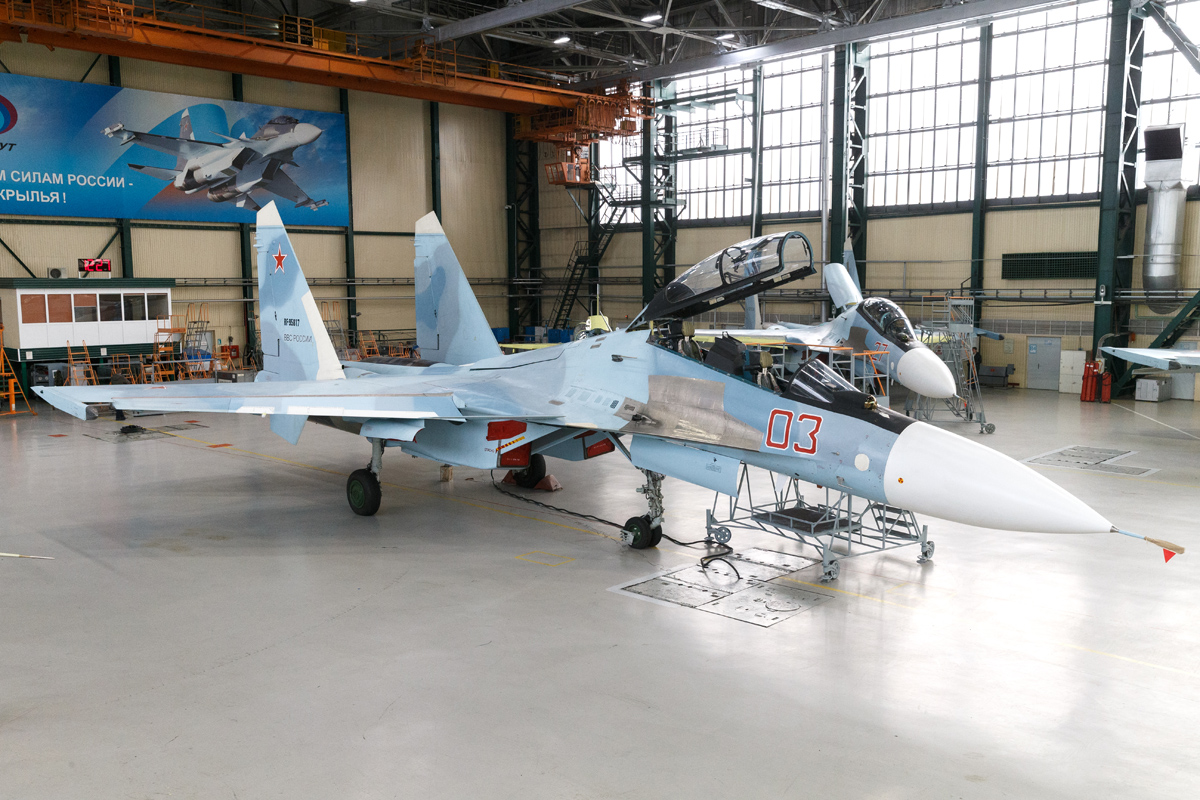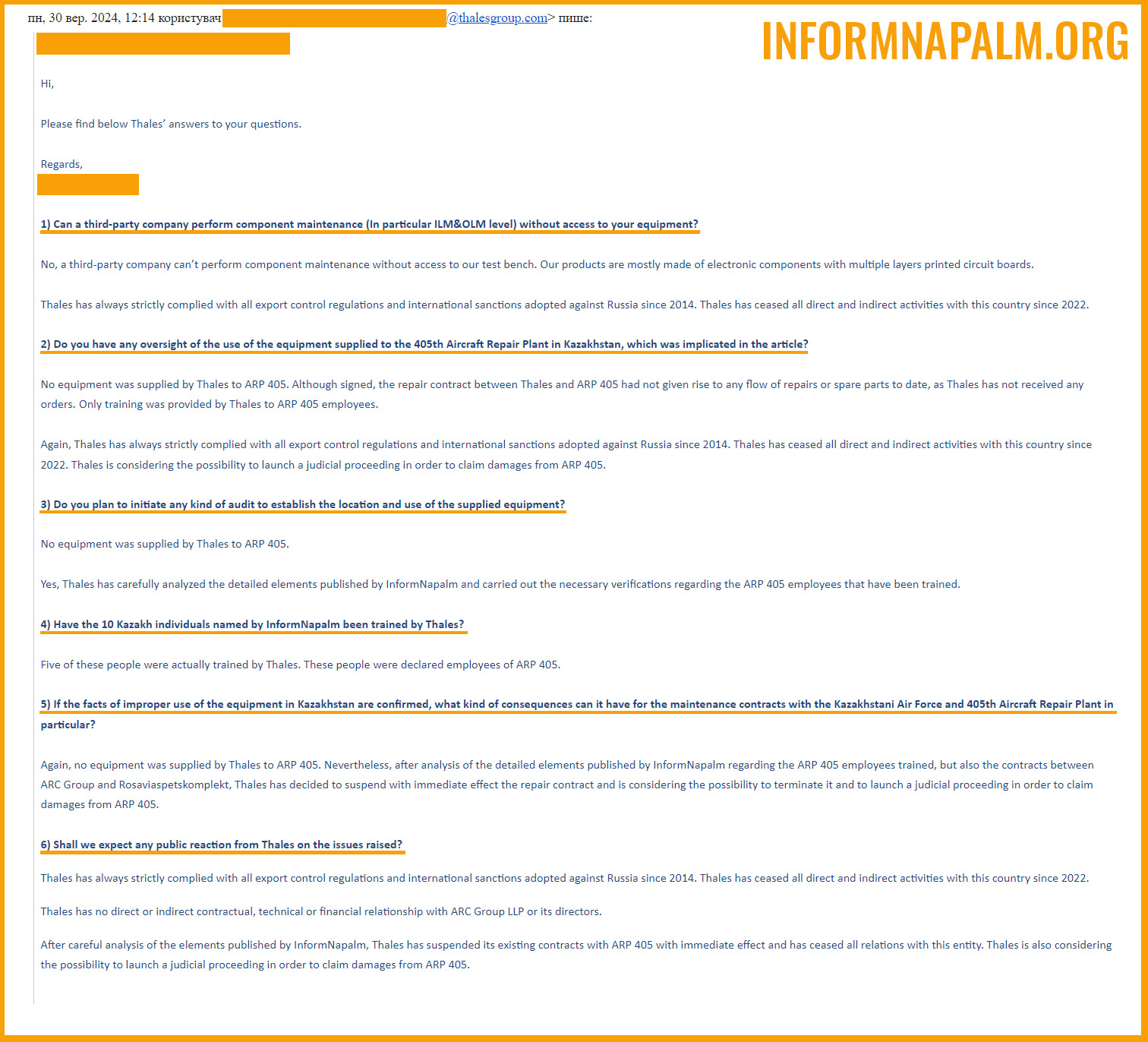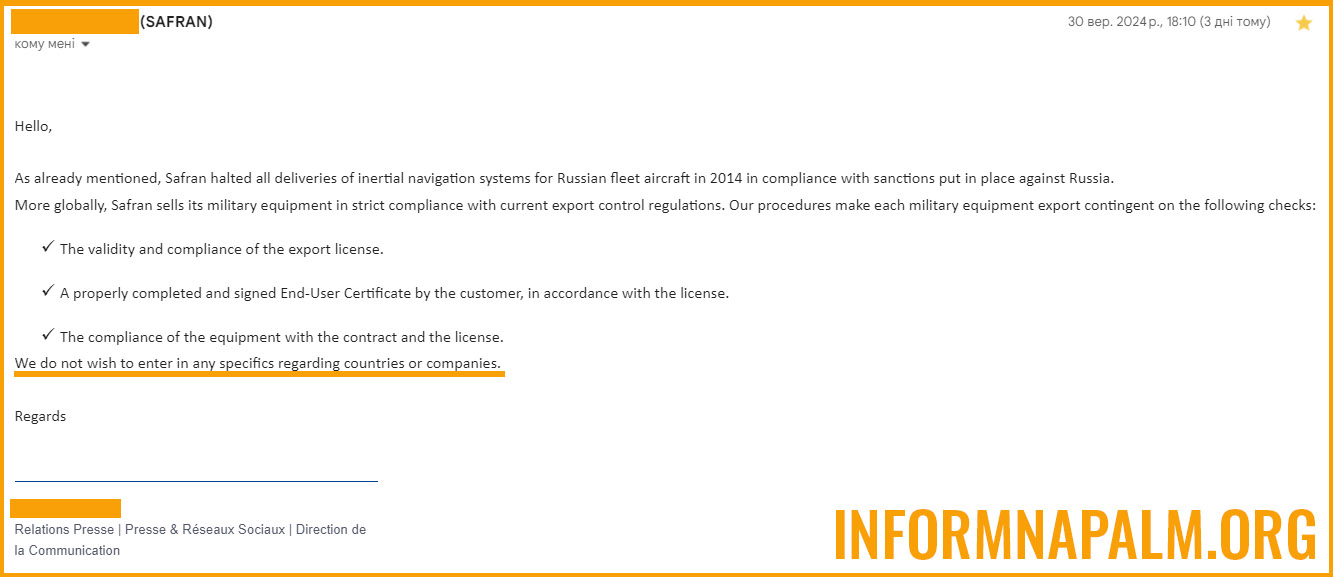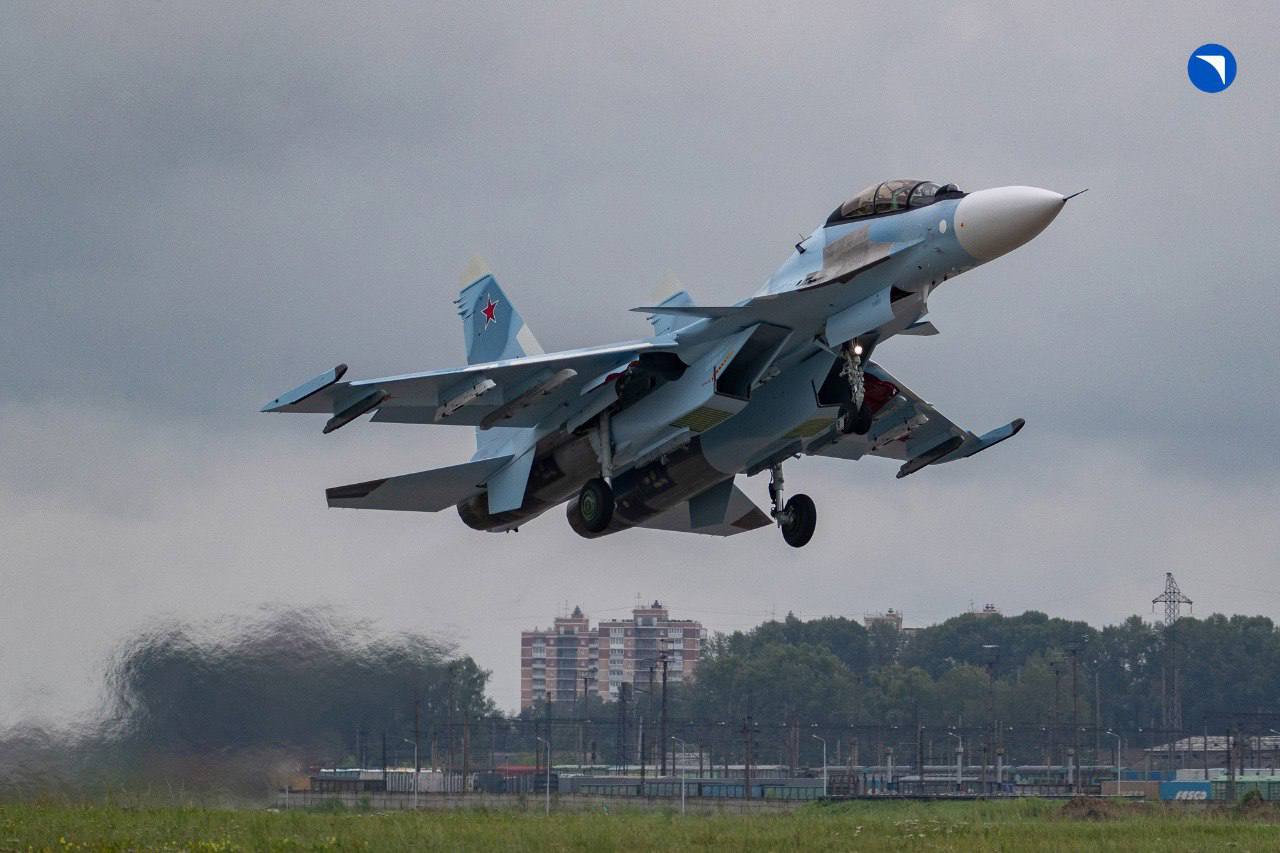Thales and Safran commented on maintenance of their devices on Russian fighters in Kazakhstan
11 October, 2024 Su-30SM2 fighter of the Russian Aerospace Forces. August 2024. Russia.
Photo credits: United Aircraft Corporation InformNapalm, an international intelligence community, addressed the French companies Thales and Safran, whose equipment is used on the Russian fighter jets and is serviced in Kazakhstan. The community published the companies' response on its website.
On September 12, it was reported that the Kazakh company ARC Group had been servicing Russian Su-30SMs in violation of sanctions, using French equipment from Thales and Safran. As of 2024, Russia has up to 130 units of modernized Su-30SM fighters equipped with French-made avionics.
 Su-30SM at the Irkutsk Aviation Plant, 2019. Photo: Ministry of Defense of the Russian Federation
Su-30SM at the Irkutsk Aviation Plant, 2019. Photo: Ministry of Defense of the Russian Federation
Thales' response
Thales reportedly took a very responsible approach to responding to the request.
The company reported that their equipment had not been delivered to the 405th Aircraft Repair Plant in Kazakhstan. Although Thales confirmed that they had trained some of the personnel, they emphasized that no repairs or spare parts had been provided to the Kazakh side.
 Thales' response. Source: InformNapalm
Thales' response. Source: InformNapalm
In addition, they have suspended all contracts with the Kazakhstan plant and are considering filing a lawsuit to terminate the agreement and possibly claim damages.
"We welcome these swift and decisive actions by Thales. Not only have they confirmed that they have been complying with international sanctions since 2014, but they have also actively responded to the specific findings published by InformNapalm. This responsible stance sets a positive example for other defense industry players, especially given the geopolitical sensitivity of the situation," InformNapalm said.
Safran's response
Safran's response to the question was more evasive.
While they assured that they had been complying with the sanctions since 2014 and outlined general export control procedures, they refused to provide any details about their ties to the organizations that provide maintenance for their components on the Kazakh side, saying only that they "do not wish to go into any details about countries or companies." Safran stated that it had stopped direct deliveries of military equipment to Russia in accordance with the sanctions, but its response did not address several important issues. First, in response to a direct question about their relationship with ARC Group, a Kazakh company that represented itself as Safran's exclusive distributor in Kazakhstan and Kyrgyzstan, they did not clarify whether ARC Group's claims were substantiated.
 Safran's response.
Safran's response.
Source: InformNapalm
InformNapalm says that if ARC Group was falsely claiming to be an exclusive distributor, it would not have been difficult for Safran to simply refute it. "Instead, their silence on this issue raises concerns about the true extent of their cooperation with ARC Group, and doubts that Safran is fully aware of the ARC Group's actions behind their back," the community says. In addition, in response to another direct question, Safran did not specify what control measures had been taken to prevent the resale of its equipment to Russia by their Kazakh partner.
"This unwillingness to clarify raises the suspicions about Safran's involvement in a scheme to circumvent sanctions. Although the company might have complied with all formalities, their unwillingness to respond to the substance of the issues requires further investigation," InformNapalm writes.
 Su-30SM2 fighter of the Russian Aerospace Forces. August 2024.
Su-30SM2 fighter of the Russian Aerospace Forces. August 2024.
Russia. Photo credits: United Aircraft Corporation
It should also be noted that at the time of writing, the ARC Group website was closed to public access. The closure of the website took place approximately one week after the publication of the investigation.
The need for control
InformNapalm writes that while Thales has demonstrated a commendable level of responsibility, Safran's vague responses only add to concerns.
"Further investigation is needed to ensure that there are no loopholes in the sanctions regime that Russia can exploit to keep its military industry operational," the project emphasizes.
The Su-30 fighters are used daily to kill Ukrainian military and the civilians during the Russia's aggressive war against Ukraine.